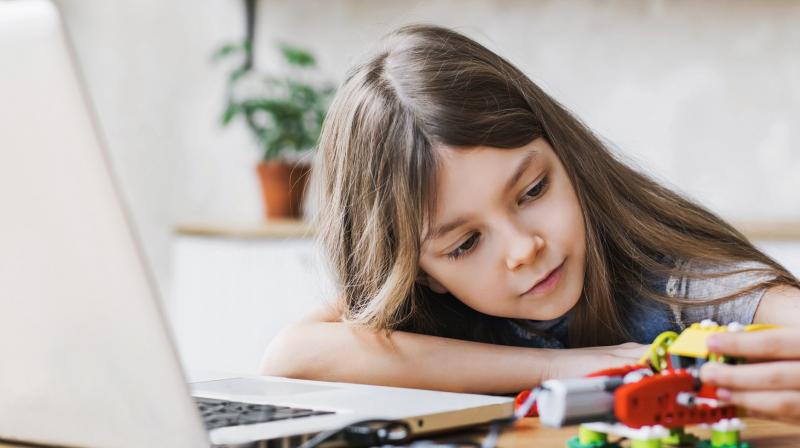Lockdown creates more troubles for kids with special needs
The lockdown has aggravated the erratic behaviour of kids with disabilities making it more difficult for parents to handle the situation

Hyderabad: Children with special needs are getting left behind due to the Covid-19 lockdown, say experts.
Since the advent of online education and training, children with disabilities have faced major disadvantages with lack of regular interaction with their teachers, peers, and no physical, sensory and occupational therapy.
The lockdown has aggravated the erratic behaviour of kids with disabilities making it more difficult for parents to handle the situation.
One such case is that of 10-year-old Madhav (name changed) who attended a non-verbal school until the lockdown. He used to spend his days learning from a special education teacher working with speech, physical and occupational therapists.
Ever since the school shut, the 10-year-old’s moods have worsened and his distractions only grew by the day. The behaviour perturbed the family and even after he calmed down after a few weeks, the family wasn't able to make sense of his erratic behaviour.
'A lot of kids with disabilities find comfort in routine, when that routine gets disrupted, their anxiety goes up and they tend to behave differently', reasoned Dr. Garima Vegivada, clinical director for speech language pathology, Hear 'N' Say Clinic, Secunderabad.
While there are online therapy options to explore, parents say it limits the scope to enhancement of only academic skills of children. Initially we were worried that lockdown would mean a setback for my daughter who suffers from Autism.
However, she has adapted well to online therapy that is limited to enhancing her academic skills. For specific issues like sensory integration and body balance, a therapist is required hands on. Parents can be guided but some exercises are best handled by experts', said Neha, a special need parent (name changed).
Dr. Garima however is of the view that online therapy will prevent the loss of the work done prior to lockdown conditions and ensure some continuity. 'The lockdown has reduced the number of parents and children seeking help due to restrictions in movement.
There is hardly a 10% inflow to my clinic, as compared to earlier. We are encouraging parents therefore to opt for tele-rehabilitation to retrieve the situation and provide much needed solace to children and their parents', she said.
This is the need of the hour treatment option that needs greater awareness for more and more children and parents in distress and those in the remote areas with no access to such therapies, she added.

